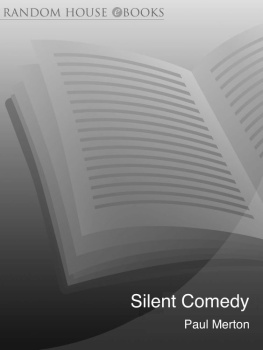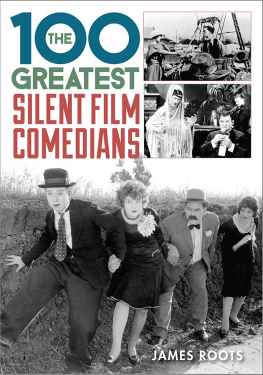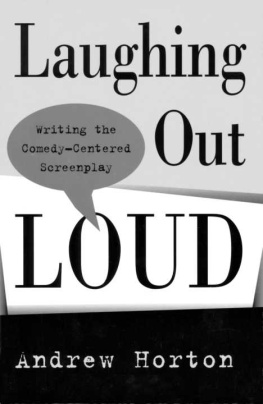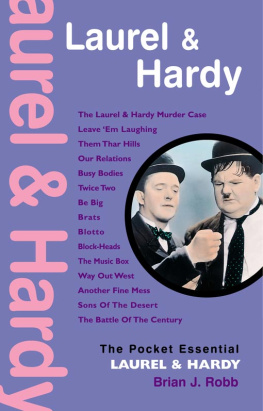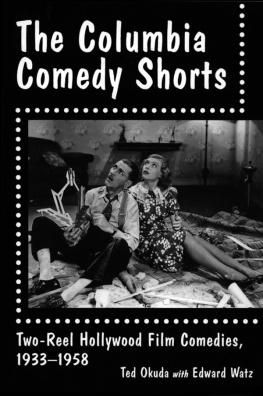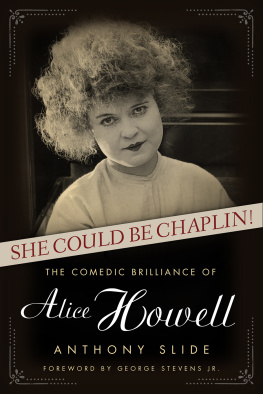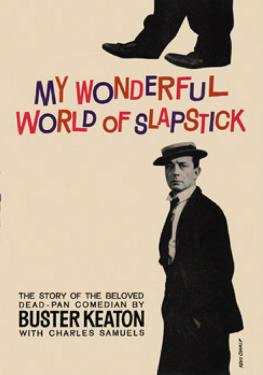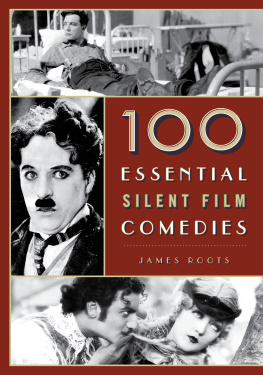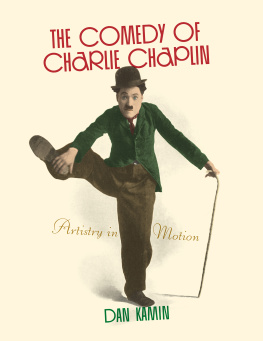
Also by DAVID KALAT
A Critical History and Filmography of Tohos Godzilla Series, 2d ed. (McFarland 2010; paperback 2017)
The Strange Case of Dr. Mabuse: A Study of the Twelve Films and Five Novels (McFarland 2001; paperback 2005)
Too Funny for Words
A Contrarian History of American Screen Comedy from Silent Slapstick to Screwball
David Kalat

McFarland & Company, Inc., Publishers
Jefferson, North Carolina
LIBRARY OF CONGRESS CATALOGUING DATA ARE AVAILABLE
BRITISH LIBRARY CATALOGUING DATA ARE AVAILABLE
e-ISBN: 978-1-4766-3652-8
2019 David Kalat. All rights reserved
No part of this book may be reproduced or transmitted in any form or by any means, electronic or mechanical, including photocopying or recording, or by any information storage and retrieval system, without permission in writing from the publisher.
Front cover images: top Carole Lombard and Fredric March nurse their injuries as Walter Connolly looks on in Nothing Sacred, 1937; left Cary Grant, Rosalind Russell and Ralph Bellamy do the institution of the press no favors in His Girl Friday, 1940; Buster Keaton and costar Virginia Fox are spooked by The Haunted House, 1921 (all images author collection)
McFarland & Company, Inc., Publishers
Box 611, Jefferson, North Carolina 28640
www.mcfarlandpub.com
For Sam and Sheila.
Buster Keaton never unleashed half the havoc you did
whenever you said, Smokey bit me.
Acknowledgments
This book didnt write itself. It was dragged, painfully, into existence thanks to an enormous number of people.
I want to thank Jeff Stafford and Turner Classic Movies for giving me a forum to start to explore these ideas in public. The time I spent working alongside the likes of Susan Doll, Greg Ferrara, Pablo Kjolseth, Kimberly Lindbergs, Richard Harland Smith, R. Emmet Sweeney, and Nathaniel Thompson was humbling and eye opening. I am also deeply grateful to the online community of readers who visited the TCM website to post their reactions and commentarysince most of them posted under online handles and pseudonyms its hard to credit them properly here, but I hope you know who you are.
I am also indebted to the community of slapstick aficionados who have variously hosted theatrical revivals and film festivals, rescued old comedies for release on home video, and engaged in deeply-researched scholarship and historical documentation. This community includes Joe Adamson, Brian Anthony, Robert Arkus, Serge Bromberg, Phil Carluzzo, Rusty Casselton, Ralph Celentano, Rob Farr, Paul Gierucki, Ken Gordon, Tommie Hicks, Cole Johnson, Tim Lanza, Bruce Lawton, Steve Massa, Ben Model, Wayne Powers, Ben Redwine, Richard Roberts, Ulrich Ruedel, Steve Rydzewski, Salvatore Salonia, Maurice Saylor, Chris Seguin, Bill Shaffer, David Shepard, Andrew Earle Simpson, Yair Solan, Tom Stathes, Dave Stevenson, Rob Stone, DJ Turner, Brent Walker, Ed Watz, and Bret Wood.
My parents, Jim and Ann, first introduced me to this world by taking me to a pizza restaurant in Durham, North Carolina, that projected old movies onto the wall to keep customers happy while they waited. It was there that I first encountered Buster Keaton, and my life was changed forever. They happily bought me books (like Walter Kerrs Silent Clowns) and later gave me a treasure trove of Buster Keaton videos as a Christmas gift.
My children, Ann and Max, have carried this passion forward as if it were a family heirloom. It was a tremendous joy to attend Slapsticon with them, year after year, even as they were surrounded by old men griping about how todays generation wont watch old movies.
Last but not least, I owe more thanks to my wife Julie than I can ever quite say. In real life I am the inept bumbling fool that Buster Keaton made a career out of pretending to be. I injure myself, destroy what Im supposed to protect, and mismanage the most basic of tasks. For more than 25 years she has patiently put up with my antics, perhaps in the hope that Ill outgrow this phase. She is my best friend, my surest coach, and the person I most admire.
Introduction: The History of the History of Silent Comedy
We begin our story at the end. The end of what, you ask? The end of silent comedy. It is March of 1949, 20 years after sound came to Hollywood and laid waste to the traditions of silent slapstick. It is St. Patricks Day, and the California Country Club is playing host to an event called the Mack Sennett Alumni and Remember When Association.
The aging wrecks of once sprightly comedians have convened, decked out in ill-fitting finery that went out of fashion back in the days of Prohibition. They are here to reminisce, to drink, to throw pies at each other. Mack Sennett, one of the true pioneers responsible for creating Hollywood as we know it, has seen to it his friends dont waste their efforts on something so ephemeral as mere fun. Hes brought camerasto record their shenanigans for posterity. This is how he built his empireby letting funny people do what came naturally and let the cameras roll.
This is not the first time these old coots have gotten together to remember when. Just the year before, the same cast of grizzled characters fted Sennett at the Masquers Club. Just 10 years before, they were recreating their shtick on camera for a serious movie, Irving Cummings Hollywood Cavalcade. The gags are the samethe gags have always been the same, since Woodrow Wilson was elected president. Only the bodies have changedthe Keystone Kops have grown fat and gray, the once vampy Bathing Beauties now saggy and wrinkled.
Old age comes to us allit is meaningless to make much out of it. It is just the accumulation of days on a calendar. But Sennett and his geriatric chums are more than just old. They are old-fashioned.
Once the unrivaled Kings of Comedy, these men and women are now relics of a form and a style long since relinquished to the dusty upper shelves of the attic. Resentful, the crusty-fusties of the Remember When Association drew the battle lines: We knew what was funny, we knew what was sexy, we knew how to make good pictures. You upstart youths dont know a damn thing. Get a haircut!
To prove his point, Sennett assembled clips of his classic silent comedies into a compilation film, Down Memory Lane, distributed by Eagle Lion in the late summer of 1949. A few years later, Sennett went to the Cannes Film Festival for a retrospective of his classic shorts. He schemed ideas for a biopic about his storied life. In short, he clung tenaciously to his achievements and zealously defended them against the changing times.
Nothing came of his biopic idea, but no matter. Hollywood Cavalcade was for all practical purposes a biography of Sennettwildly unreliable and inaccurate, sure, but likely no more inaccurate or unreliable than the one Sennett would have made about himself. The man turned himself into a legend, and even he started to believe the hype.
Hollywood Cavalcade was a symptom of a larger phenomenon. Throughout the first few decades of the sound era, Hollywood struggled to come to grips with its silent past. Or, put another way, the increasingly corporate movie-making industry struggled to spin its messy, anarchic past into a PR-friendly packaged narrative.
In September 1949, the same year as Mack Sennetts self-congratulatory Remember When bash and recycled
Next page


